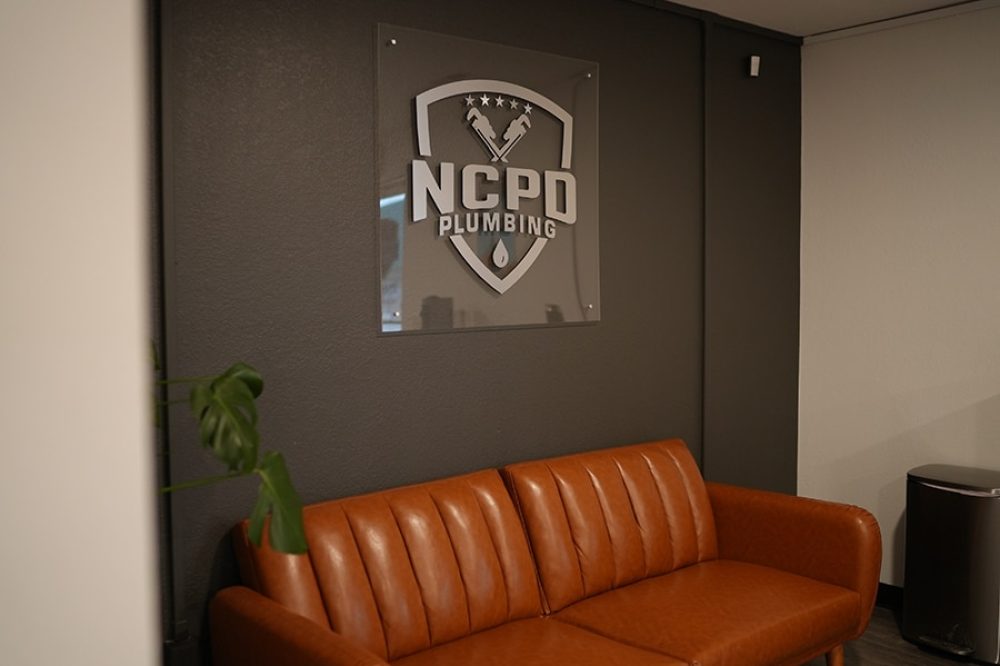Water heaters play a crucial role in our daily lives, providing hot water for showers, laundry, and dishwashing. Over time, sediment can accumulate inside your water heater, affecting its efficiency and potentially shortening its lifespan. Regular maintenance, including sediment cleaning, is essential to keep your Asheville water heater running smoothly. In this article, we will discuss the importance of cleaning sediment from your water heater, DIY cleaning steps, signs that indicate cleaning is needed, and when it’s time to consider professional assistance or even water heater replacement.
Maintaining Your Asheville Water Heater: Sediment Cleaning Tips
Regular maintenance of your Asheville water heater is crucial to ensure its optimal performance and longevity. Sediment buildup is a common issue in water heaters, especially in areas with hard water. Sediment consists of minerals, such as calcium and magnesium, that settle at the bottom of the tank over time.
Here are some essential tips to help you clean sediment from your water heater:
- Turn off the power: Before starting the cleaning process, it’s important to turn off the power supply to your water heater. For electric heaters, locate the circuit breaker and switch it off. For gas heaters, turn off the gas supply.
- Allow the water to cool: Sediment cleaning should only be done when the water inside the tank has cooled down. This prevents the risk of burns or scalding. Wait for a few hours or overnight to ensure the water has reached a safe temperature.
- Drain the tank: Connect a garden hose to the drain valve located at the bottom of the water heater tank. Place the other end of the hose in a suitable drainage area, such as a floor drain or outside. Open the valve and let the water drain out. Be cautious as the water may be hot. You can also open a hot water tap in your home to help with the draining process.
- Flush the tank: Once the tank is drained, close the drain valve and turn on the cold water supply to the water heater. The rushing water will help loosen and flush out the remaining sediment. Allow the water to run for a few minutes or until it runs clear.
- Repeat if necessary: If the water still appears cloudy or sediment-filled, repeat the draining and flushing process until the water runs clear.
- Close the drain valve: After the cleaning process is complete, close the drain valve securely.
- Turn on the power: Once you have finished cleaning, you can turn the power supply back on. For gas heaters, follow the manufacturer’s instructions to relight the pilot light.
Signs Your Asheville Water Heater Needs Cleaning
Regularly cleaning sediment from your water heater is essential, but how do you know when it’s time to perform this maintenance task? Look out for these signs that indicate your Asheville water heater needs cleaning:
- Reduced hot water flow: If you notice a decrease in hot water flow from your faucets or showers, sediment buildup may be obstructing the water flow.
- Noises from the water heater: Sediment can cause rumbling, popping, or banging noises as the water heater heats the water. These sounds are an indication that sediment is interfering with the heating process and affecting the efficiency of the water heater.
- Discolored or cloudy water: Sediment buildup can result in discolored or cloudy water coming out of your faucets. This is a clear indication that your water heater needs cleaning.
- Longer heating time: If your water heater takes longer than usual to heat up the water, it may be due to sediment accumulation, which reduces the heating efficiency.
- Unpleasant odors: Sediment can create a foul smell in the hot water supply. If you detect an unusual odor, it’s a sign that your water heater requires cleaning.
Professional Water Heater Cleaning in Asheville: What to Expect
While performing a DIY sediment cleaning can be effective, some homeowners prefer to seek professional assistance to ensure thorough cleaning and avoid any potential risks. Hiring an experienced plumbing contractor, like NCPD Service, for water heater cleaning in Asheville offers several advantages.
When you hire professionals for water heater cleaning, you can expect:
- Expertise and knowledge: Professional plumbers have the necessary expertise and knowledge to clean your water heater effectively. They are equipped with the right tools and techniques to remove sediment without damaging the tank or its components.
- Comprehensive cleaning: Professionals will perform a thorough cleaning of your water heater, ensuring all sediment is removed from the tank and the associated components.
- Inspection and maintenance: Along with cleaning, professional plumbers can inspect your water heater for any signs of damage, leaks, or other issues. They can also provide maintenance recommendations to improve the efficiency and lifespan of your water heater.
- Efficient and time-saving: Hiring professionals saves you time and effort. They will efficiently clean your water heater, allowing you to focus on other important tasks.
When you choose NCPD Service, an experienced plumbing contractor in Asheville, you can be confident in receiving top-notch water heater cleaning services. Their team of skilled plumbers will ensure that your water heater is thoroughly cleaned and functioning optimally.
The Impact of Sediment Buildup on Asheville Water Heaters
Sediment buildup in your Asheville water heater can have a significant impact on its performance and longevity. Understanding the consequences of sediment accumulation emphasizes the importance of regular cleaning and maintenance.
Here are some ways sediment buildup can affect your water heater:
- Reduced efficiency: Sediment acts as an insulating layer at the bottom of the water heater tank, making it harder for the heating element or burner to transfer heat to the water. As a result, your water heater needs to work harder and consumes more energy, leading to reduced efficiency and higher energy bills.
- Shortened lifespan: Sediment accumulation can lead to corrosion and premature deterioration of the water heater tank. Over time, the sediment can cause leaks or even tank failure, necessitating costly repairs or water heater replacement.
- Increased risk of malfunctions: Sediment can clog the drain valve, pressure relief valve, or other components of the water heater. This can result in malfunctions, such as water leaks, inconsistent temperature, or complete system failure.
- Poor water quality: As sediment accumulates, it can mix with the water, leading to poor water quality. The sediment can cause discoloration, foul odors, and unpleasant tastes in the hot water supply, making it less desirable for daily use.
Preventing Sediment in Your Asheville Water Heater: Maintenance Tips
While sediment cleaning is necessary to remove existing buildup, taking preventive measures can help minimize sediment accumulation in your Asheville water heater. Here are some maintenance tips to prevent sediment from building up:
- Flush your water heater regularly: Flushing your water heater once or twice a year can help remove any loose sediment before it settles at the bottom of the tank. Follow the same process mentioned earlier for draining and flushing the tank.
- Install a sediment filter: Consider installing a sediment filter on the water supply line leading to your water heater. This filter can help trap sediment and prevent it from entering the tank.
- Consider a water softener: If your area has hard water, which is rich in minerals, installing a water softener can help reduce sediment formation. Water softeners remove the minerals responsible for sediment buildup, resulting in cleaner water and reduced sediment accumulation in your water heater.
- Regularly check and replace the anode rod: The anode rod is a sacrificial component that attracts corrosive elements, protecting the water heater tank. Over time, the anode rod can become depleted and less effective. Regularly inspect the anode rod and replace it when necessary to prevent sediment formation and tank corrosion.
- Consult a professional plumber: It’s beneficial to consult an experienced plumbing contractor, such as NCPD Service, to assess your water heater and provide tailored recommendations for preventing sediment buildup. They can guide you on the best maintenance practices specific to your water heater model and the local water conditions in Asheville, NC.
When to Replace Your Asheville Water Heater: Warning Signs
While regular cleaning and maintenance can extend the lifespan of your Asheville water heater, there may come a time when replacement is the best course of action. It’s important to be aware of the warning signs indicating that your water heater may need to be replaced. Here are some signs to look out for:
- Age of the water heater: Most traditional water heaters have a lifespan of about 8 to 12 years. If your water heater is approaching or exceeding this age range, it may be time to consider a replacement, especially if you’re experiencing other issues.
- Frequent repairs: If you find yourself frequently calling for repairs and experiencing recurring problems with your water heater, it may be more cost-effective to invest in a new unit. Constant repairs can indicate that your water heater is reaching the end of its lifespan.
- Leaks and water damage: A leaking water heater can cause significant water damage to your property. If you notice water pooling around the base of the tank or signs of rust and corrosion, it’s crucial to address the issue promptly. In many cases, water heater replacement is necessary to prevent further damage and potential safety hazards.
- Decline in performance: If your water heater consistently fails to deliver hot water at the desired temperature or if you’re experiencing inconsistent water heating, it may be an indication of a failing unit. This decline in performance can be attributed to various factors, including sediment accumulation, tank deterioration, or a faulty heating element.
- Efficiency and energy savings: As water heaters age, they tend to become less efficient, resulting in higher energy bills. Upgrading to a newer, more energy-efficient water heater, such as a tankless water heater or hybrid water heater, can lead to significant energy savings in the long run.
- Improved functionality and features: Newer water heater models offer advanced features and technologies that enhance performance and convenience. For example, tankless water heaters provide on-demand hot water and take up less space, while hybrid water heaters combine the benefits of tank and tankless systems.
- Incentives and rebates: When you replace your Asheville water heater with an energy-efficient model, you may be eligible for incentives or rebates from local utility companies or government programs. These incentives can help offset the cost of the new unit and make the upgrade more affordable.
- Increased property value: Upgrading your water heater to a newer and more efficient model can add value to your home. Potential buyers appreciate energy-efficient features and modern appliances, making your property more appealing in the real estate market.
- Long-term peace of mind: By replacing your water heater proactively, you can avoid sudden breakdowns, costly repairs, and potential water damage. A new water heater provides peace of mind knowing that you have a reliable and efficient system that will meet your hot water needs for years to come.
Asheville Water Heater: Cleaning vs. Replacement Considerations
When deciding between cleaning your Asheville water heater and opting for a replacement, there are a few factors to consider:
- Severity of sediment buildup: If your water heater has excessive sediment buildup and cleaning alone may not restore its efficiency, replacement may be the better option.
- Age and condition of the water heater: If your water heater is nearing the end of its expected lifespan, experiencing frequent issues, or showing signs of significant wear and tear, it may be more cost-effective to replace it rather than investing in repetitive cleanings and repairs.
- Energy efficiency: If you’re concerned about energy efficiency and want to reduce your utility bills, upgrading to a newer, more efficient water heater can provide long-term savings.
- Budget considerations: Evaluate your budget and weigh the cost of cleaning, potential repairs, and ongoing maintenance against the investment of a new water heater. Consider the long-term benefits and potential savings of a replacement.
In conclusion, regular cleaning of sediment from your Asheville water heater is crucial for maintaining its efficiency and extending its lifespan. DIY cleaning can be effective, but professional water heater cleaning offers comprehensive results and expert assistance. Be vigilant for signs of sediment buildup and consider preventive measures to minimize accumulation. When necessary, don’t hesitate to consult an experienced plumbing contractor like NCPD Service for water heater cleaning or replacement. Make informed decisions based on the age, condition, and long-term benefits of your water heater to ensure reliable hot water supply and optimal performance in your Asheville home.






